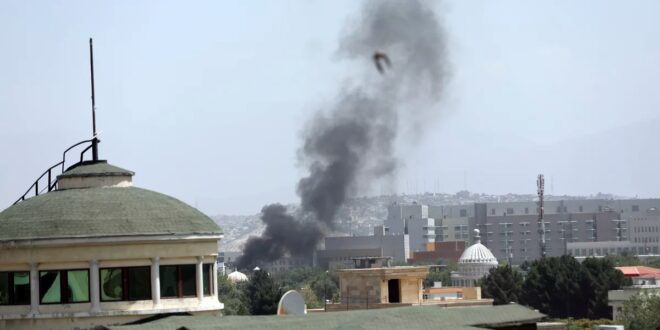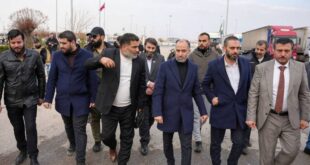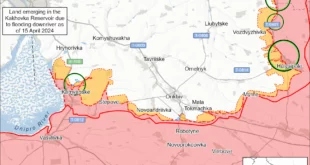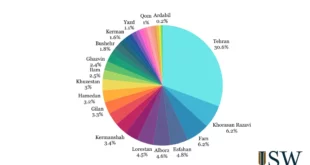Afghan President Ashraf Ghani Taliban has left Afghanistan, just hours after the insurgency’s forces surrounded the nation’s capital city of Kabul Sunday — all but ensuring the collapse of the national government and a return to rule by the insurgent group for the first time in two decades.
Ghani and his immediate team have left the country, according to Afghan government sources speaking to The Associated Press, Reuters and the highly respected local TV network TOLO.
Ghani has been under enormous pressure to step down and Taliban leaders have demanded his resignation and a transfer of power to an interim government.
Earlier, Taliban and Afghan officials said they were negotiating a peaceful transfer of power, though reports from the ground indicate much unrest.
“There is an agreement that there will be a transitional administration for orderly transfer of power,” said acting Interior Minister Abdul Satar Mirzakwal in a Tweet news agency TOLO posted Sunday.
The imminent takeover of Kabul comes as the U.S. was in the process of drawing down its forces in the country as part of a complete exit ahead of the 2oth anniversary of the Sept. 11, 2001 terrorist attacks. But in the days leading up to the Taliban’s push on Kabul, President Biden announced about 5,000 troops would be sent to the country, boosting efforts to provide security for evacuations of U.S. personnel.
Taliban offensives accelerated across the country in recent weeks, with the religious militia claiming victory over victory in dozens of provincial capitals and other key cities. Taliban fighters moved towards Kabul after capturing the eastern city of Jalalabad overnight — the last major city stronghold still in government hands along a key road to the capital.
The Taliban’s advance on the Afghan capital came as helicopters landed at the U.S. Embassy early Sunday, The Associated Press reported. Diplomats scrambled to destroy sensitive documents, sending smoke from the embassy’s roof, the AP said.
One resident of Kabul, who NPR is not identifying to protect their personal security, described a chaotic situation in Kabul as Taliban forces neared the city.
“Right now, the thieves, robbers, all the looters are out and trying to loot cars — whichever are traveling right now,” the woman said. “My father was just speaking to one of his friends and [there are] gunshots everywhere.”
“In [our neighborhood] we have this guard with a gun and he also just shot at someone because people are trying to loot houses and whomever is passing by the road,” she said.
In a statement issued Saturday, Biden said he had ordered the armed forces and the intelligence community to ensure that the U.S. maintains the capability and vigilance to address future threats from Afghanistan. The president warned that if the Taliban threaten American personnel or interests the insurgent group would face a “swift and strong” response from the U.S. military.
But he also said the U.S. had done all it could to ensure a secure Afghanistan.
“Over our country’s 20 years at war in Afghanistan, America has sent its finest young men and women, invested nearly $1 trillion dollars, trained over 300,000 Afghan soldiers and police, equipped them with state-of-the-art military equipment, and maintained their air force as part of the longest war in U.S. history,” Biden said. “One more year, or five more years, of U.S. military presence would not have made a difference if the Afghan military cannot or will not hold its own country. And an endless American presence in the middle of another country’s civil conflict was not acceptable to me.”
Early Sunday, the White House had not yet responded to the news that Kabul had been overtaken and that a transfer of power appears is being negotiated.
 Eurasia Press & News
Eurasia Press & News




